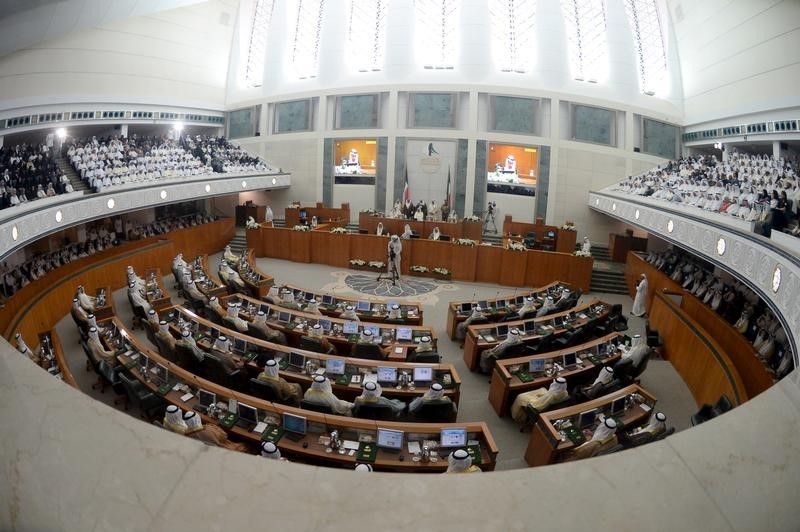By Ahmed Hagagy
KUWAIT (Reuters) - Kuwait's government formally submitted a public debt law to parliament on Sunday which would allow it to borrow 20 billion dinars ($65 billion) over 30 years, including 8 billion dinars to help finance the current budget deficit, a legislator said.
The government and parliament have long been at odds over the law which would allow Kuwait to tap international debt, but the issue has gained urgency in recent months as the oil-exporting nation has been hit by low crude prices and the COVID-19 pandemic.
Safaa al-Hashem, head of parliament's financial and economic committee, announced details of the request while reiterating criticism of the government for not outlining investment plans and failing to diversify state revenues away from oil.
"The country is drowning in economic problems that need to be addressed," she said in parliament after a meeting with officials from the finance ministry and Kuwait Investment Authority (KIA), which manages two sovereign wealth funds.
"What is the government plan for investment spending?"
Kuwait has been drawing down its General Reserve Fund to plug the deficit, which the International Monetary Fund estimates could reach more than 11% of gross domestic product this year, compared with a 4.8% surplus last year.
Hashem said the fund only had 1.1 billion dinars left.
Reuters could not immediately reach the government for comment. It has previously said Kuwait has plans for economic reform and diversification, but that lawmakers often block them, particularly if they are unpopular.
The Future Generations Fund, which automatically receives 10% of state oil revenue each year and has only been drawn down once, during the first Gulf War, accounted for about $489 billion of KIA's estimated total assets of $527 billion at the end of March, according to Fitch Ratings estimates.
A government official, speaking on condition of anonymity, told Reuters on Sunday that the state was considering selling assets of the General Reserve Fund to the Future Generations Fund as one alternative to plug the deficit.
